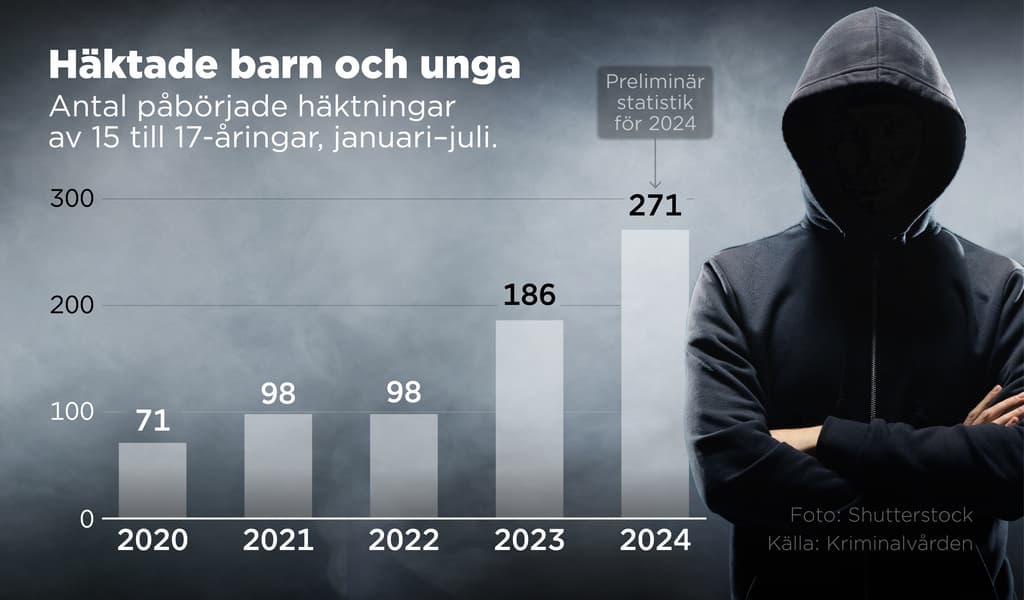After the violent summer, a large number of minors have been arrested by the police and then remanded in custody by the court. As many as 75 young people between 15 and 17 years old began their detention in June and July alone.
Young people are usually only remanded in custody for very serious crimes and it involves suspicions related to murder, attempted murder, explosions, serious weapons offenses, and similar.
Two of them are a 16-year-old boy and a 15-year-old girl who were remanded in custody at the end of July for a shooting in Södertälje. Another is a 15-year-old boy who was remanded in custody for aiding and abetting the murder of a teenager in Bagarmossen, Stockholm, earlier in July.
"Very serious"
Teenagers have increasingly gained access to illegal firearms and been drawn into gang-related violence, notes Sven Granath, criminologist at the Stockholm police.
The police have also managed to apprehend more people after violent crimes, and furthermore, there is now an increased willingness in the judicial system to remand young suspects in custody instead of letting social services take care of them, he says.
Even though the group with risk factors doesn't actually become much larger, it is of course very serious that young people are being drawn into this serious crime, says Granath.
Are unusually many "child soldiers" being recruited now?
Yes, this is an indication of that. And above all, that the contact areas between the slightly older gang criminals, who instigate and project manage, and the younger ones have increased through social media and new communication technology.
It may also be that the older ones are even more aware of the risks of committing violent crimes, he believes.
What remains are then the younger young people who cannot see the consequences and cannot offer much else to organized crime except to perform violence and store weapons.
Challenge for the remand prisons
On average, 83 minors were remanded in custody in July. In May and June, it was over 100.
As an authority, we do not have long experience of handling such high numbers of minors in custody, so it is a challenge. But we have learned to find working methods, says prison inspector Aso Cåzade.
Minors have a legal right to four hours of daily contact with other people. It can be different types of activities with staff, such as being in the sports hall, playing cards, baking, watching movies together, or having ordinary conversations.
At the same time, the remand prisons are quite full and there is sometimes a lack of space.
We must ensure that children suspected in the same case do not sit in the same department. When it comes to isolation-breaking measures, we cannot move an inmate to just any location with regard to hearing and multiple door openings, says Aso Cåzade.






